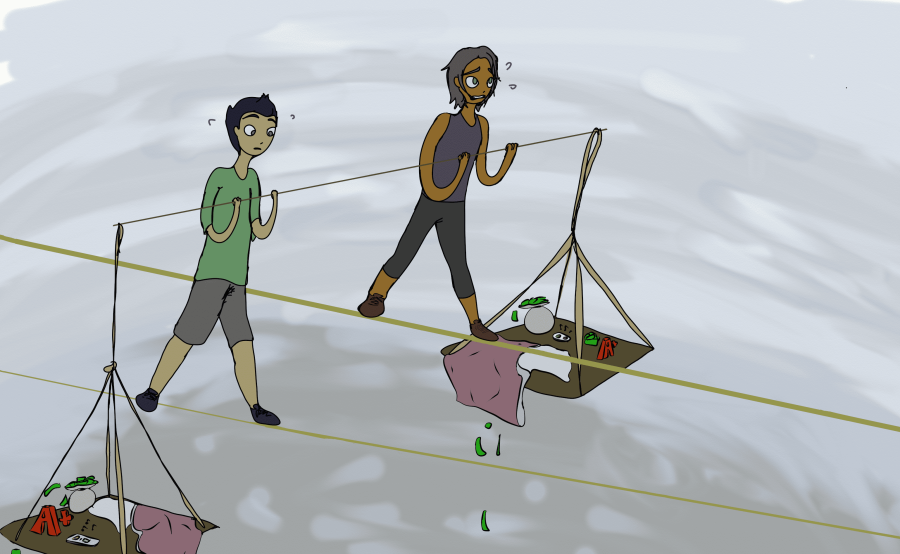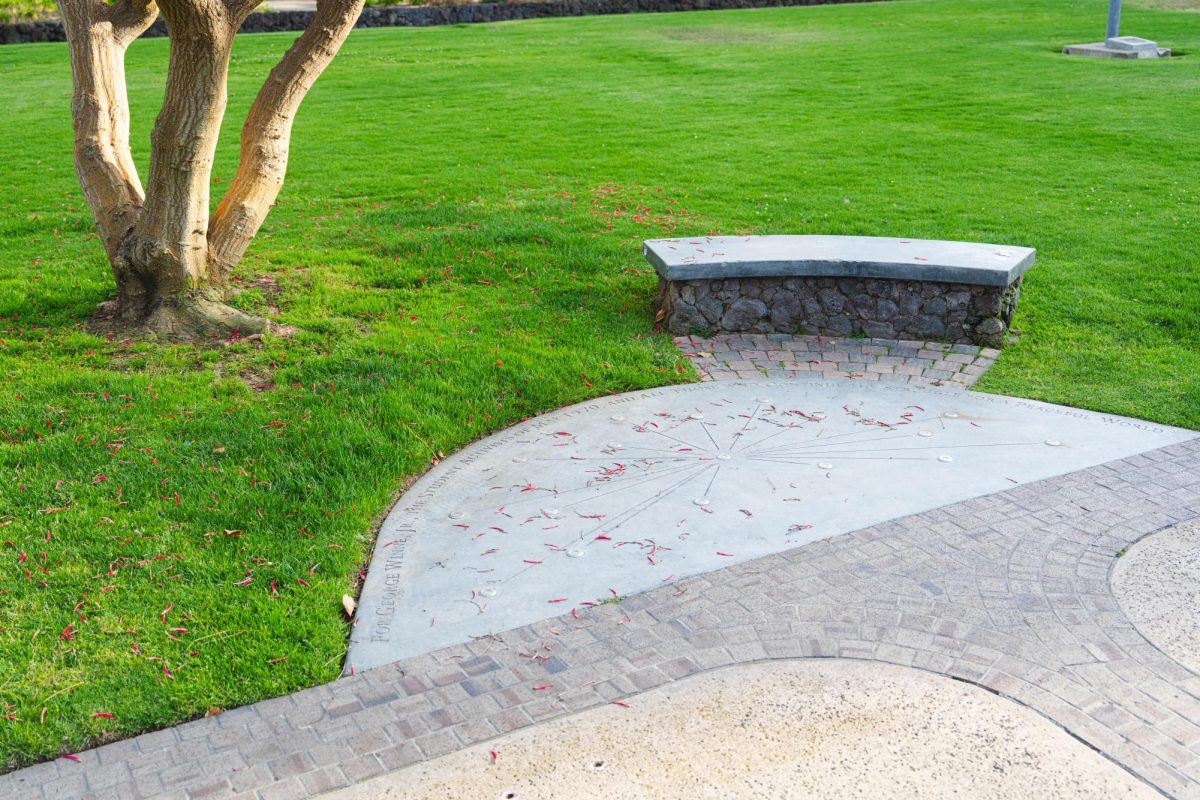The pre-med path is under the spotlight based on new findings about the mental health of pre-med students. How will universities balance having academic success with lowering the academic intensity for students?
All students — some more so than others — struggle with their mental health at some point. Mental health concerns are especially common among pre-medical undergraduate students, who face near-constant stress and the looming prospect of applying to medical school.
There is a strong pre-med presence at UC San Diego. A total of 20 organizations are available for students interested in the medical field. From the American Medical Student Association to Pre-Meds Without Borders, there are large board organizations and more specific organizations with a focus on certain ethnic groups.
The path to medical school begins as an undergraduate student, where college students pursue a pre-medicine — or “pre-med” — academic path, in which they take the college classes necessary to eventually enroll in medical school. The pre-medicine path follows a very rigid structure: undergraduate education, then medical school, and then residency, which leads to a full-time job.
Kaplan Test Prep, a resource for students who are going to be taking both undergraduate and graduate entrance exams, conducted a survey in 2020 of about 400 pre-med students centered around their mental health while on this path.
The published results of the survey showed that “almost four in 10 aspiring doctors (37 percent) surveyed say that they have ‘seriously considered’ dropping their plans for a medical career because of the level of stress they experienced as a pre-med.”
Kaplan also released findings that offered more specifics when it came to the breakdown of how much stress pre-med students were feeling as a whole, as “more than a quarter (26 percent) of pre-meds surveyed say they experience stress ‘pretty much always.” Another “45 percent say they experience it ‘frequently.’ Twenty-eight percent say ‘occasionally,’ while only 1 percent say ‘never.’”
While stress is not reserved to being pre-med, pre-med students face unique stressors.
Dr. Koetje, Kaplan Test Prep’s director of pre-health programs, knows the ins and outs of the pre-med pathway as someone who has personally gone through it and by being an advisor to students.
“They deal with long hours in labs and late-night studying for challenging courses like organic chemistry and other weed-out courses,” Dr. Koetje told The UCSD Guardian. “So there’s a lot of anxiety associated with some of this coursework, for example, and then you add in the other challenges like studying and preparing for tests like the MCAT.”
The workload that many pre-med students face can be hard to handle for most, as there is a high-level of pressure to not stray from the four year plan that is standard for medical school applicants. The heavy general education workload that comes from certain colleges like Roger Revelle College and Eleanor Roosevelt College can take up valuable space in student schedules. There are financial aid ramifications to adding on more years at the undergraduate level, as financial aid stops after four years.
The financial cost of pursuing a career in medicine is extremely high. On top of the debt accumulated at the undergraduate level, the average cost of attendance at a public medical school is $34,592 per year. The required four years of medical school can also lead to an abundance of additional debt from loans. Furthermore, the course load at the graduate level also lends little time for working part-time, making it harder for medical students to financially support themselves. At the residency level, the post-graduate trainee only earns $61,200 annually, on average.
All students will be thinking about post-graduate opportunities at some point or another, but UCSD houses one of the more renowned medical schools,serving as a daily reminder of the task at hand.
Pre-med culture is based around competition to achieve the highest possible results via testing and GPA to get one of the coveted spots at a medical school. Students are pushing themselves in a similar fashion to other competitive graduate programs, such as law school, to stand out in each of the admission categories that medical schools focus on.
“Medical schools, if you look at the data for GPA and MCAT scores, when you look at those numbers you see very high numbers across the board for students that are accepted into medical school,” Dr. Jeff Koetje said. “So students who are pursuing the medical field are well aware that to be competitive in the application process, they really need to have a strong academic record and strong MCAT scores to be competitive in an environment, where currently the acceptance rate to medical school is about 40 percent overall. So in any given application year there is 60 percent of applicants that are not getting in.”
There was a reluctance from some pre-med students at UCSD to comment on the survey done by Kaplan. This was driven by a stigma of appearing to be weak when it comes to addressing mental health issues faced by students. Even with the promise of anonymity, the students declined to be included in this article.
This competition can then lead to scores and grades becoming personal. Some students feel trapped in this mindset. “I remember crying constantly throughout the day over how unhappy I was in my major and how trapped I felt studying biology,” one student said in the Kaplan survey. “I wanted to do medicine, but I felt I wasn’t smart enough or good enough.”
A student’s lack of perceived success, in relation to competitors, can be an identifiable tax on the mind. It leads to a lower self-esteem as they are not meeting the expectations that are set for them, and it leaves the student feeling rejected. This is all done facing the possibility of rejection once the application to medical schools is sent in.
“Another impact here is recognizing what is known as imposter syndrome, where students have a fear where they will be discovered as a kind of intellectual fraud, that they don’t belong, that they haven’t earned the right to be a pre-med student, they haven’t earned the right to be in that school to be accepted into med school, ” Dr. Koetje said.
Former pre-med students in the medical community are exploring the idea of collaboration as a change in pre-med culture that would benefit the mental health of pre-med students. The idea is centered around prioritizing collaboration among the students early on in the pre-med process since it is already important once the students become doctors. This would mean more group work in the classes and reward those students who have worked on team-based projects. The results from the collaborative emphasis is easing the pressure on the academic grades and creating opportunities for friendships to be formed.
The students would be getting used to collaborating, something they will do once they become doctors.
“So you know one is saying it’s happening now in the conversations about the whole overall impact of the culture that favors competition vs. collaborations,” Dr. Koetje said. “We need to be supporting the development of collaborative skills and cooperative skills in students who are pursuing the health professions because the way that they will practice health care is in a collaborative and team environment.”
This part of the medical community wants to tone down the intensity of the competition among pre-med students, but Dr. Koetje points out the need for balance of both academic competition that develops naturally and demonstrating a willingness to collaborate.
“That [collaboration] doesn’t mean we change the focus around learning and successfully achieving learning goals and performance goals; it’s not changing that per se,” he said. “It’s changing how we get to those performance goals. We can all perform well through collaboration and cooperation.”
A pre-med student responding to the Kaplan Survey showed a prime example of what it feels like to seek help in such a competitive environment: “Pre-meds tend to be very competitive as well and constantly compare themselves to the other pre-meds, so that just exacerbates the stress and makes it almost embarrassing for a pre-med student to admit they’re stressed and seek out help.”
The solution to this problem is by destigmatizing mental health problems and encouraging students to reach out for help.
Previous generations in America as a whole have generally labeled the act of reaching out for help as something only the weak do. The medical field wants to pivot away from this approach that has been in the culture into a more open-armed approach.
“So a few things just in terms of meeting individual students’ needs: it’s important that educational professionals like advisors, career counselors, [and] faculty members encourage students to seek help when the students need help,” Dr. Koetje said. “Part of that is also related to destigmatizing mental health issues and experiences of psychiatric and mental health illnesses. Resources are available through university wellness centers and drop-in counseling centers, it’s important for students to know that they are available.”
A tentative proposal brought by Dr. Koetje could help give context to certain student’s grades or scores that were affected by mental health problems. The “holistic review” is a process intended to acknowledge the overall context in which the numbers like GPA and MCAT scores will be considered, so that the numbers are not the make- or the breakpoint, according to Dr. Koetje. It will track the journey of students and the circumstances that they have had to endure in their life. This could theoretically lead to room for students to reach out for help and know that it will be taken into account in their application.
The findings from the Kaplan survey are initiating the conversation about how to tweak the pre-med path so it can take into account future doctors. The changes to the application review process and the environment of pre-med students are all steps taken from this conversation, but it is only just starting.
“We need to continue the conversation on what does this academic community really value and what do we — as the academic community that is the pipeline into the health care professions and the caring professions —how do we care for pre-meds,” Doctor Koetje said
Kaplan took one of the first steps to gauge the mental toll that the pre-med process has on students. It has only scratched the surface of long-term studies to follow. As new information comes in, it’s going to be up to the students to take the medicine.
Art by Kalo Grimsby for The UCSD Guardian.













